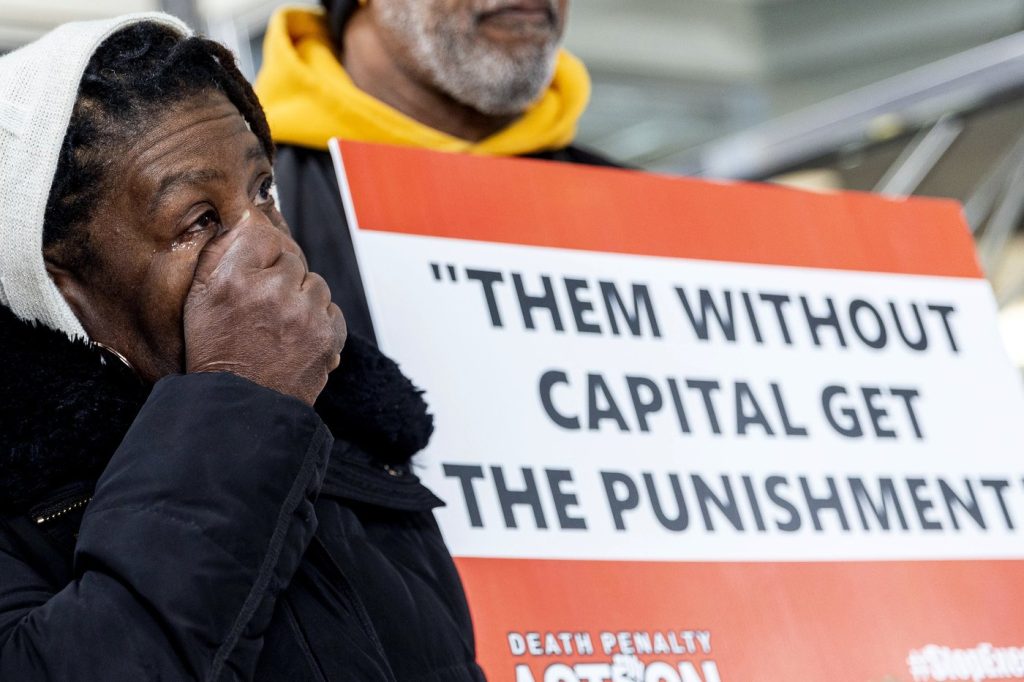MONTGOMERY, Ala. (AP) — A federal judge has recently denied a request to halt the scheduled execution of Demetrius Frazier, marking what would be the fourth execution in the U.S. using nitrogen gas. Chief District Judge Emily C. Marks ruled that Frazier did not provide sufficient evidence to support his claims that this execution method is unconstitutionally cruel and induces psychological terror.
Frazier's legal team sought a preliminary injunction to either postpone his execution scheduled for Thursday in Alabama or to require the state to administer a sedative before using nitrogen gas to execute him. In her ruling, Marks asserted that Frazier had not met the “exceedingly high” standard required for such an injunction, stating, “Frazier fails to meet his burden to establish that the Protocol does create a substantial risk of serious psychological pain such that the Protocol violates the Eighth Amendment.”
Demetrius Frazier is facing execution for the brutal murder and rape of Pauline Brown in 1991. Prosecutors detailed that Frazier broke into Brown's apartment in Birmingham, raped her, and shot her in the back of the head, leading to his conviction. His looming execution is part of Alabama's recent move towards nitrogen gas as a method of capital punishment, following the precedent set when three inmates were executed using this method in 2024.
The nitrogen gas method involves placing a gas mask on the inmate's face to substitute breathable air with pure nitrogen, resulting in death due to oxygen deprivation. Frazier's attorneys referred to witness accounts of the earlier executions, arguing that the method causes a distressing experience akin to conscious suffocation rather than the swift death the state promised.
Dr. Brian McAlary, an anesthesiologist who observed a nitrogen execution in November, described witnessing clear signs of distress in the inmate, Carey Dale Grayson, who reportedly appeared conscious for as long as three minutes after the process began. Furthermore, eyewitness reports from media sources, including the Associated Press, noted that the inmates exhibited involuntary movements prior to their deaths.
Despite these accounts, Judge Marks determined that the descriptions of the executions did not conclusively demonstrate that the inmates experienced extreme psychological pain beyond what is typically associated with executions. The state has argued that the movements observed could have been involuntary or acted out. While Marks acknowledged that there might be a threshold beyond which conscious oxygen deprivation could be deemed unconstitutional, she emphasized that the evidence presented did not rise to that level in Frazier's case.
Prior to his conviction in Alabama, Frazier was sentenced to life imprisonment in Michigan for the 1992 murder of a 14-year-old girl, a crime for which Michigan does not impose the death penalty. In a last-ditch effort, Frazier's mother, Carol Frazier, appealed to Michigan Governor Gretchen Whitmer, urgently requesting the governor to intervene and secure her son's return to Michigan to serve his life sentence rather than being executed in Alabama. In her letter, she implored, “Please bring my son back to Michigan. Please don’t let Alabama kill my son if you can stop it.”
Governor Whitmer's office has not offered any comments regarding the request made by Frazier's mother, leaving the outcome of this situation uncertain as the execution date approaches.










